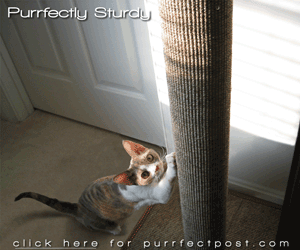Why Is My Cat Meowing More Than Normal?

A cat's meow is like a human's voice, and they use it as part of their communication with us. Some cats are naturally "chattier" than others. For instance, many Siamese cats are known for loving to "talk," and they do so more than many other breeds.
However, if your cat suddenly begins meowing more than usual or the tone and character of the meow changes, there might be a problem.
Stress Can Cause Increased Meowing
Cats can become stressed out for a lot of reasons, and some of those may be surprising to humans because we are not cats and different things stress us out. However, it's good to know which things are known for causing cats to get upset because stress can lead to unwanted behaviors like inappropriate urination or scratching inappropriate items. Also, for some cats, it can cause an increase in meowing.
Here are some things that are known to cause stress in cats:
- Change in schedule of people in the home. If someone who is a primary caretaker or loved one of the cat is suddenly gone more than usual, it can often cause a cat tremendous stress.
- The addition or subtraction of a housemate. If another pet or person in the home leaves or dies or a new pet or person is added to the household, a resident cat can become quite stressed out.
- Remodeling or rearranging of the home. Remodeling a home comes with lots of noise and can be quite stressful to a cat. But even rearranging furniture can cause a sensitive cat to become stressed out. That's because cats quickly become used to how things are and having items in different spots than usual can make them nervous.
- Noise. Many cats are extremely stressed out by things like fireworks, parties, and other noisy events.
- Traveling. Getting into a cat carrier and going in the car to visit the veterinarian, groomer, or to stay at a kennel can all be extremely stressful situations for a cat.
- Social issues with other cats in the home. When you have a multiple cat household, it's possible that some cats might bully others. It's also possible that caretakers might not be aware they aren't providing enough resources for all the cats to live comfortably. Resources include food and water bowls, cat litter boxes, cozy cat beds, scratching posts, and time with humans.
If you are aware of a feline stress-inducing situation, try to mitigate it as best you can. Additionally, try Feliway, which is an analog of a feline calming pheromone. Using it can help calm your cat.
Illness Can Cause an Increase in Meowing in Cats
If the cat is suffering from some type of medical condition, meowing might increase as a way to try and communicate that issue. Cats with hyperthyroidism quite often become much more vocal as a result of the increased metabolism that condition causes, which makes them feel hyper.
Pain can cause increased vocalization in cats.
Dementia or senility can cause increased vocalization in cats, especially at night, when the kitty might get even more confused.
Abdominal irritation like nausea can cause an increase in meowing in cats.
Attention-Seeking Causes Increased Meowing in Cats
Often, cats meow because they get attention for it. So, an increase in meowing may indicate that the kitty has learned she gets a reaction from you when she talks.
However, you don't want to make the mistake of assuming your cat is just being pushy. If there is a sudden increase in vocalization, have her checked out by a veterinarian first and evaluate your situation for any causes of stress that might be present. If everything checks out, and you're pretty sure your cat is just attention-seeking and you'd like her to stop, try ignoring the meowing behavior, only giving her attention or playtime when she's quiet.
Of course, that doesn't mean that you should punish your cat for meowing. It only means that you can reward her for being quiet instead, so she learns that meowing doesn't get her the attention she wants.






